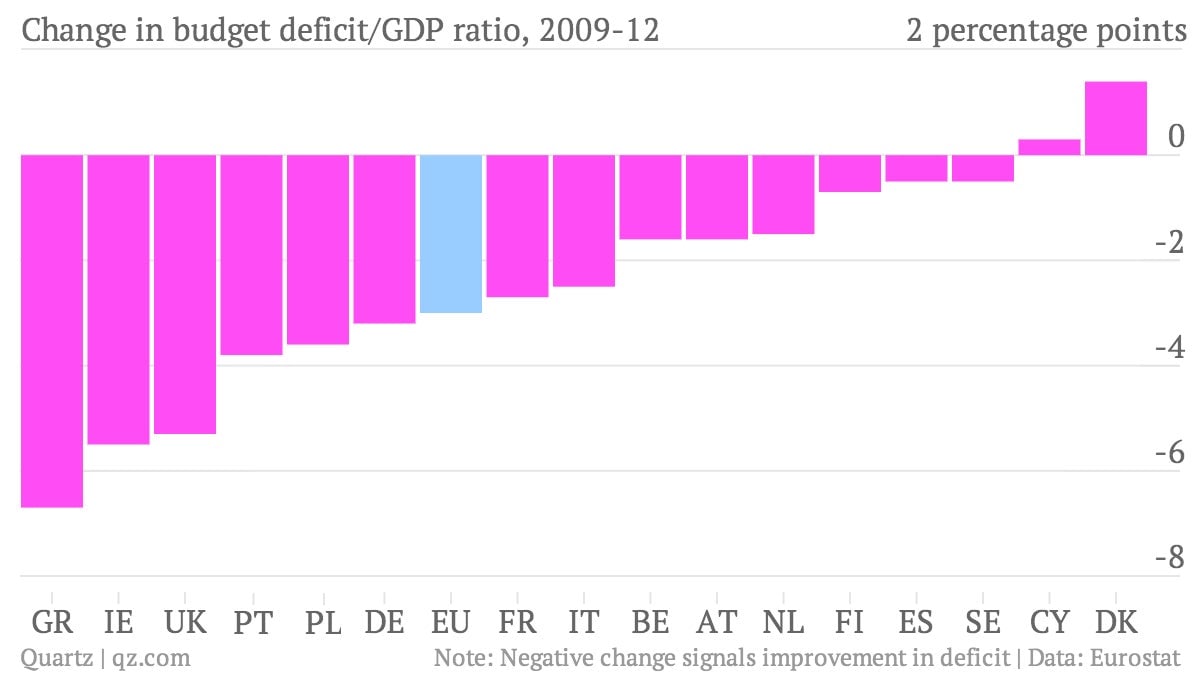Who suffers the most? Europe’s austerity misery, ranked
Huge crowds took to the streets in Rome this past weekend to protest a tough new budget presented by the prime minister. Similar scenes played out in central Lisbon. As the combination of spending cuts, wage freezes and tax hikes across Europe continues to bite, austerity fatigue has become deeply entrenched, regularly boiling over in protests and strikes.

Huge crowds took to the streets in Rome this past weekend to protest a tough new budget presented by the prime minister. Similar scenes played out in central Lisbon. As the combination of spending cuts, wage freezes and tax hikes across Europe continues to bite, austerity fatigue has become deeply entrenched, regularly boiling over in protests and strikes.
New data (pdf) on European governments’ finances gives some context on the scale and scope of austerity in the region. Most notably, the new numbers revised up estimates of Ireland’s budget deficit while it cut them for Spain and Greece. As a share of GDP, the EU’s collective budget deficit was 3.9% in 2012, down by three percentage points from 2009. This represents some €300 billion ($410 billion) slashed from budgets last year in comparison with three years earlier.
The pain is widespread but not evenly distributed. As a share of their economies, the adjustments in Greece, Ireland and the UK stand out for their severity over the past three years. Setting aside Greece as potentially beyond repair, supporters of tough austerity policies will see Ireland’s forthcoming exit from its bailout program and the UK’s surprisingly perky economy as proof of their convictions. Elsewhere, the austerity in Germany looks tougher than in Italy. Spain’s adjustment is even more modest, roughly equal to Sweden’s.
Of course, there are important caveats to any conclusions drawn solely on these numbers. Falling GDP in the euro zone’s periphery understates the impact of deficit-cutting measures when they are judged in relation to the size of the (shrinking) economy. Even so, in absolute terms Spain’s fiscal adjustment is roughly the same as Portugal’s, despite its vastly larger economy.
Many other factors not captured by government budget balances—debt levels, the health of financial systems and trends in unemployment, to name a few—contribute plenty to general economic misery. But to oversimplify greatly, as measured purely by the severity of government austerity, the protestors in Lisbon have more to be angry about than their counterparts in Rome.